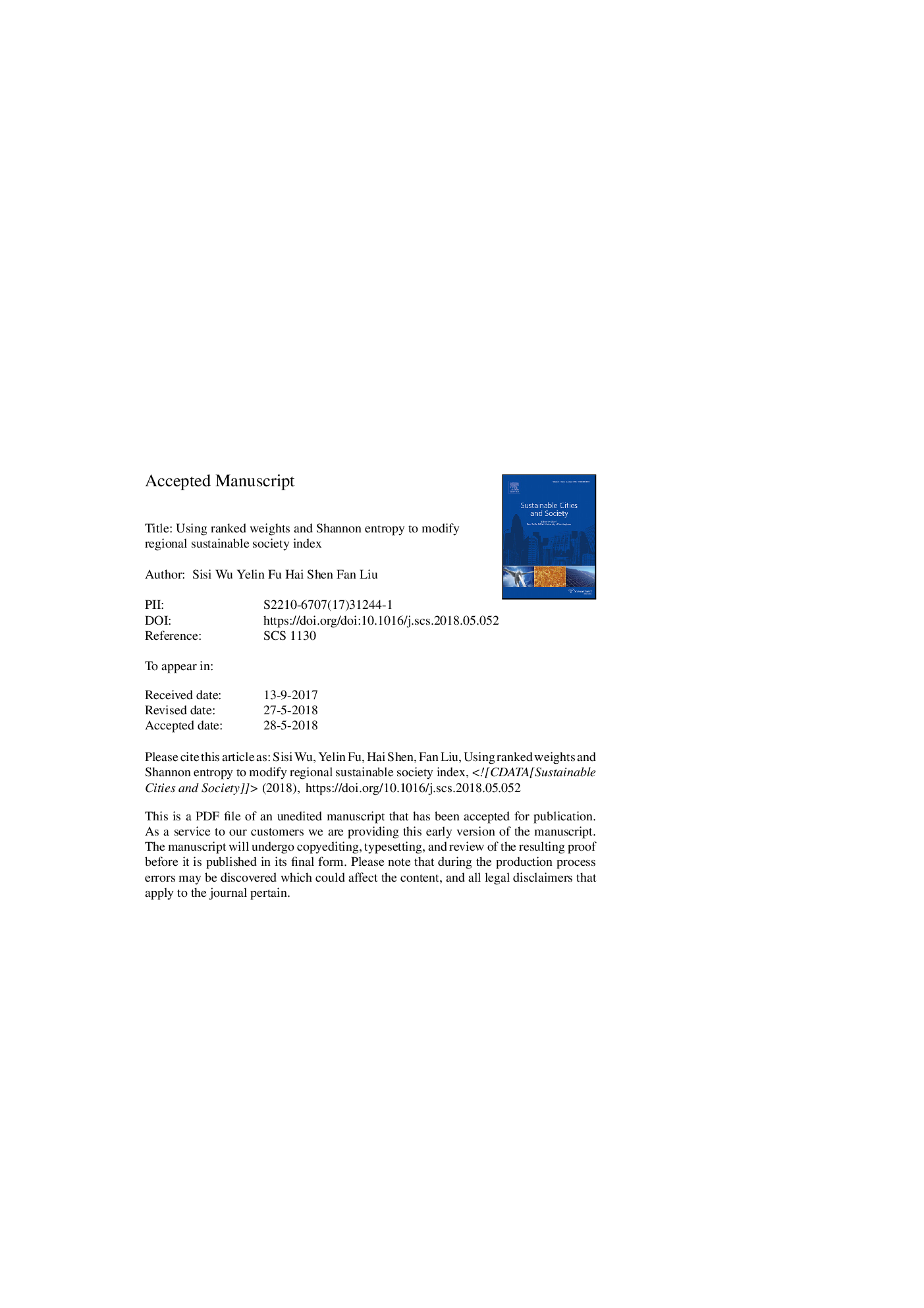| Article ID | Journal | Published Year | Pages | File Type |
|---|---|---|---|---|
| 6775063 | Sustainable Cities and Society | 2018 | 24 Pages |
Abstract
Published since 2006 on a biennial basis by the Sustainable Society Foundation, the Sustainable Society Index (SSI) calculates the sustainability level of various geographical entities (e.g., countries or regions) by aggregating three dimensions of wellbeing, namely, Human Wellbeing, Environmental Wellbeing and Economic Wellbeing, with equal weights. An aggregation with equal weights is likely to overlook the discriminating power of each dimension of the SSI. In this study, we propose the use of ranked weights and Shannon entropy to overcome this shortcoming of the SSI. Specifically, we take into account all possible preferences among various dimensions, use a sophisticated mathematical transformation to calculate the least and most favorable sustainability levels under certain preferences, adopt the geometric mean values of the extreme levels to formulate a new preference-as-column decision matrix, and employ Shannon entropy to determine a set of common weights associated with each preference. We then calculate the Spearman's rank correlation coefficients to re-evaluate the published SSI and demonstrate the added-value of our logic. A case study of regional SSI reveals the applicability and superiority of the proposed method.
Keywords
Related Topics
Physical Sciences and Engineering
Energy
Renewable Energy, Sustainability and the Environment
Authors
Sisi Wu, Yelin Fu, Hai Shen, Fan Liu,
